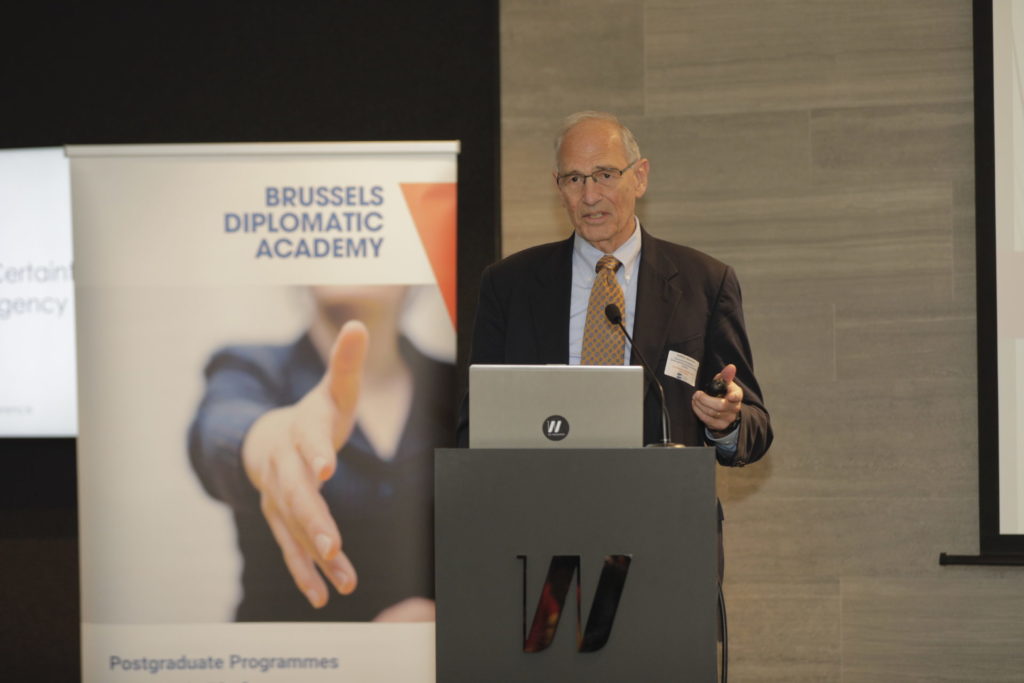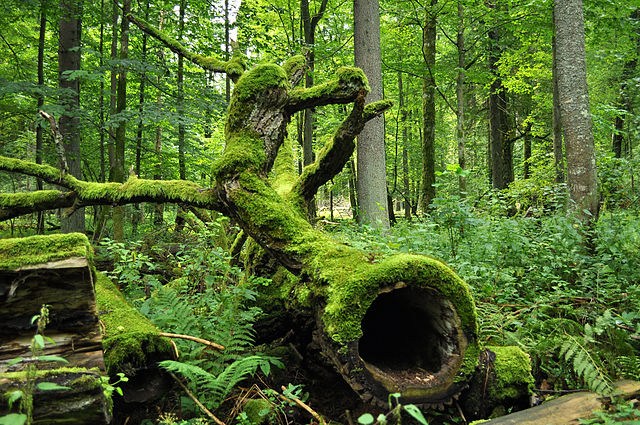The European Union (EU) has a unique chance to effectively abate the dire consequences of the looming climate emergency on future generations — and to do so it needs to address the problems in its own backyard, a leading climate scientist said on Monday.
"We still have an opportunity to do something," William Moomaw, a leading author of a Nobel Prize-winning U.N. report on climate change told a diplomatic conference in Brussels, calling on EU leaders to swap out routine, if ambitious, political declarations for science-based action.
Speaking at a conference on the EU's role in building a sustainable future, Moomaw highlighted a key measure which could help the EU attain its own goals —including a pledge by the newly sworn-in EU Commission to attain climate neutrality by 2050—: to protect the last of its remaining old-growth forests.
Citing recent scientific reports on the remarkable carbon-absorption capacities of old-growth or primaeval woodlands, the IPCC member said it was urgent for EU leaders to stop turning a blind eye to illegal logging practices devastating old forests in Eastern European countries like Romania.
"There's a lot of talk about planting trees," Moomaw said, adding that while it was a "good thing to do" in the long-run, it would "not make a difference in 2030."
The continued chopping and burning of old-age trees, some of which Moomaw said were being shipped to countries like Belgium and the Netherlands, is a central obstacle stifling the EU's capacity to achieve climate goals like the ones adopted in the Paris Accords of 2016.
In order to effectively reach short-term goals, the Nobel-Prize recipient said the EU needed to look past reforestation and the creation of young forests and embrace a notion he referred to as "proforestation," which consists in letting trees grow old.
"Proforestation will remove and store more carbon per hectare in the near term —when it is most urgently needed— than aforestation and reforestation," Moomaw said, calling on leaders to take measures to allow nature to do its job.

William Moomaw, Professor Emeritus of International Environmental Policy at Tufts University, and IPCC Nobel-Prize winning author, addressed a diplomatic conference organised by the VUB's Brussels Diplomatic Academy. Credit: Marc Geeraerts/Brussels Diplomatic Academy
'Essential' for EU to take leading role on climate
Moomaw's statements coincide with the first day of the U.N.'s COP25 conference on climate, which kicked off in Madrid on Monday and which will see world leaders discuss climate and environmental policies, and which comes just days after a bleak report found that, four years after the Paris accords, carbon emissions had reached an all-time high.
Moomaw—who was also one of the 11,000 climate scientists who said humanity would face "untold suffering" if no meaningful measures on climate change are taken— also called out the EU Parliament for their "carbon neutrality" concept, which he said skewed perspectives as it was not based on science.
"The EU Parliament decided that burning of wood was carbon-neutral — by definition, not by science," Moomaw said, noting that the bioenergy sector in the EU, which relies, among others, on forest wood, was a larger contributor to carbon emissions into the atmosphere than coal.
"The argument that 'it's carbon-neutral because it regrows' totally misses the point of what we have to do – which is to let things grow," Moomaw stated, noting that most of Scandanavia's woodland had been transformed into tree farms where trees were "never allowed to get big enough to store carbon."
Past failures of political leaders to heed the calls of the scientific community —and, increasingly, of civil society— to implement policies to fight climate change have resulted in a dramatic increase of the efforts that must now be undertaken to limit the worst consequences that a warming planet is forecast to have on the environment and on human communities, he said.
Moomaw lauded the determination of young generations in pushing for ambitious climate action and said it was "absolutely essential" for the EU to take a leading role in bridging the gap between words and action.
Gabriela Galindo
The Brussels Times

